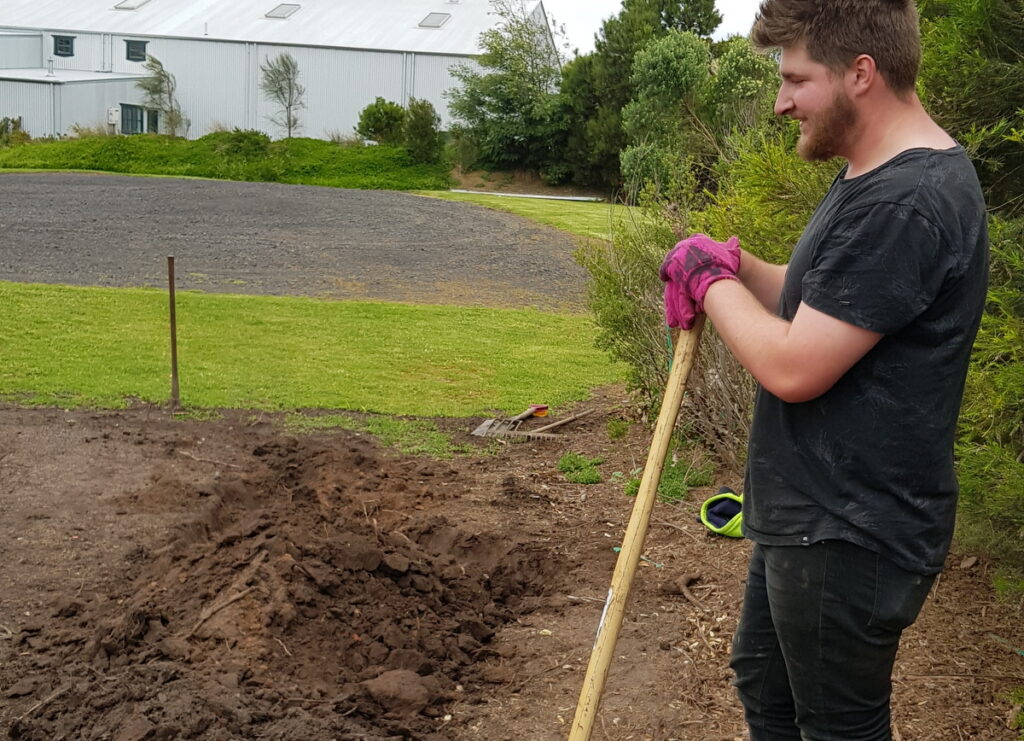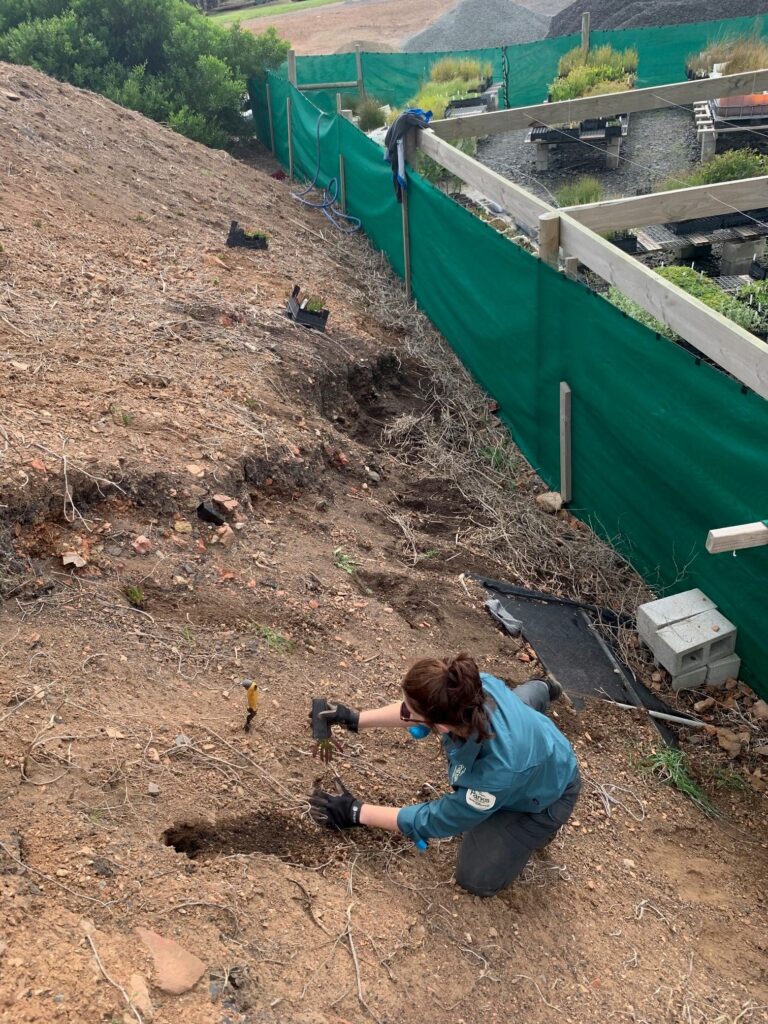Garden beds at the State Coal Mine (SCM) are challenging to create; the reason being that much of the surface soil includes deposits of fired terracotta clay. Back in the day when the site was an active coal mine, the dumped stockpiles of coal mine waste would occasionally catch fire. The prolonged heat fired the clay, creating chunks & bits of of hard terracotta clay. Over a number of years, we have contributed to the development of some of the sites gardens and provided plants.
There are two community projects currently underway at the SCM.
- Create & replenish the garden bed behind the row of carriages on the grassy knoll in front of the cafe – this will take shape during 2020
- Revegetation of the large mullock heap behind the nursery – also taking shape during 2020. This will be very challenging as the ‘soil’ is constructed from the dumped coal waste, the slope is quite steep in places and rainfall run-off is likely to be significant. Carpobrotus rossii a spreading succulent perennial with large purple flowers that open on sunny days has initially been planted as this species is a good soil binder for landscapes that have steep slopes!
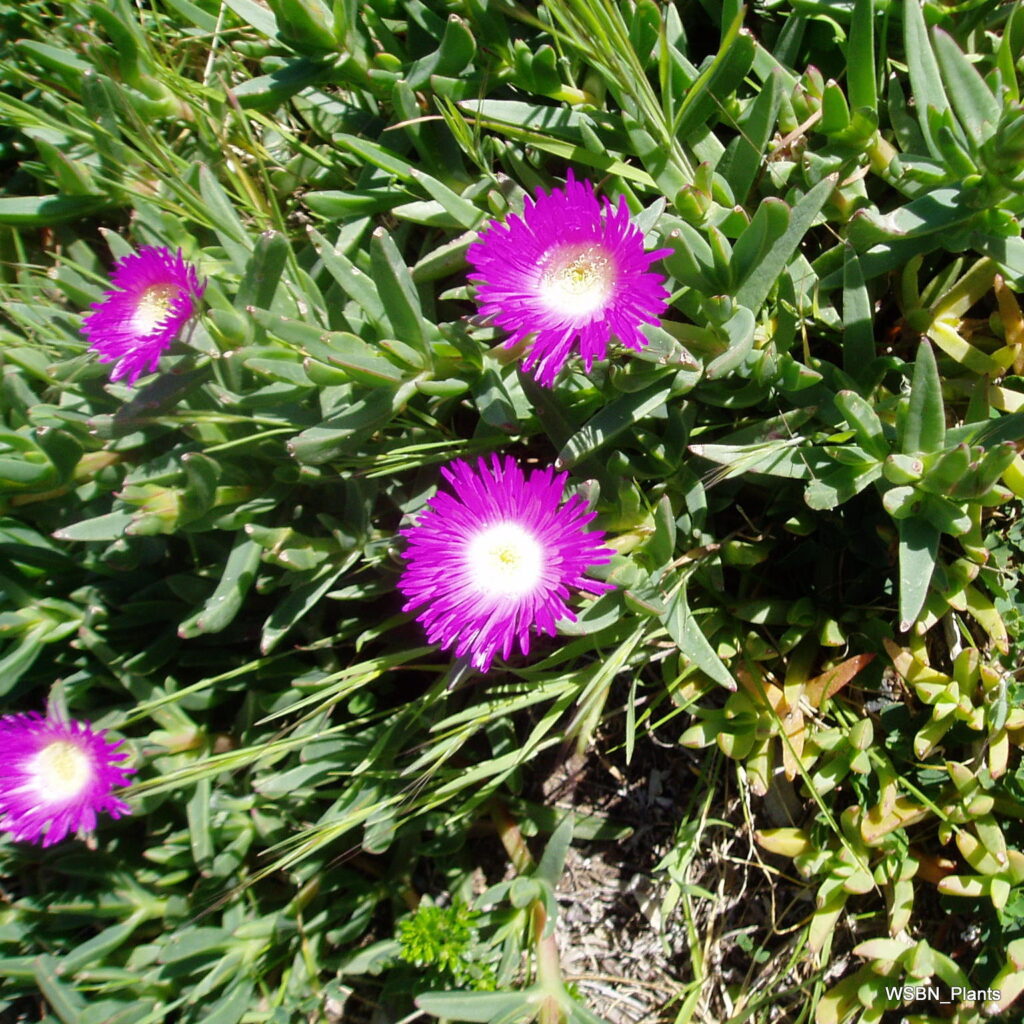
The photos below will include images taken over time so we can capture the landscape changes.
Garden bed:
The indigenous plant species that will be planted in this bed will include:
- Plant list – coming soon….
Mullock heap:
As the images below show, this site is very challenging. The soil type has a gravel texture due to the small pieces of terracotta clay and other mine waste components. The grade of the slope is also quite steep which gives rainfall little opportunity to seep into the soil surface. It also as the images show make re vegetation activities rather ‘goat like’.

SCM_ Mullock Heap 1st planting May 2020 
SCM_ Mullock Heap 1st planting May 2020
The indigenous plant species that will be planted in the mullock heap will include:
- Carpobrotus rossii – The first species to be planted
- Other plants – coming soon….
This space will show the progress of the mullock heap re-vegetation at the State Coal Mine – Wonthaggi:
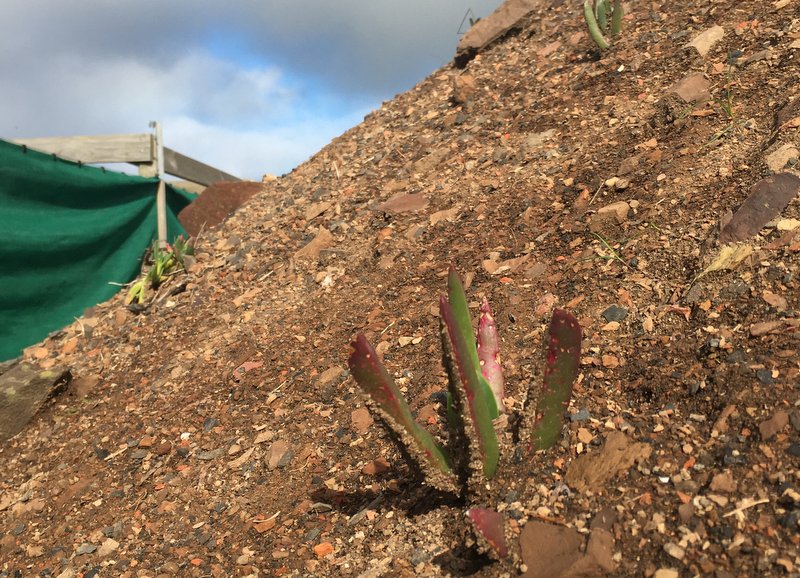
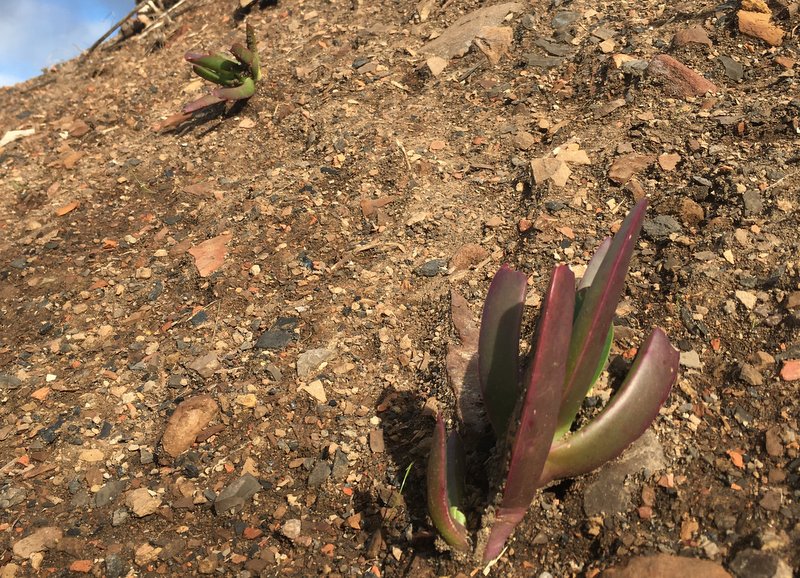
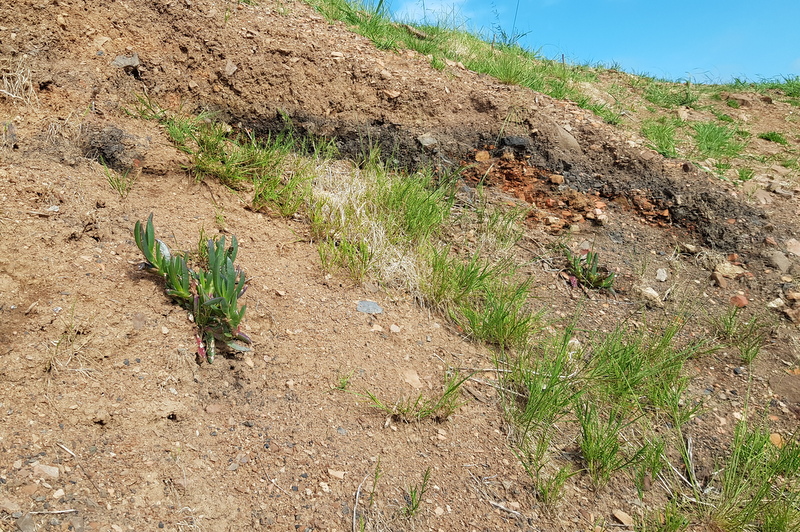
If you have any enquiries regarding this project please email contact@wsbn.org.au

